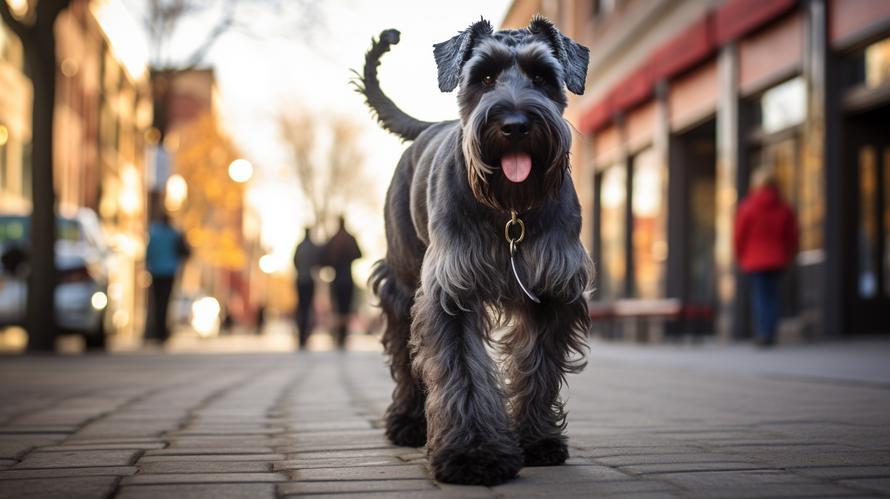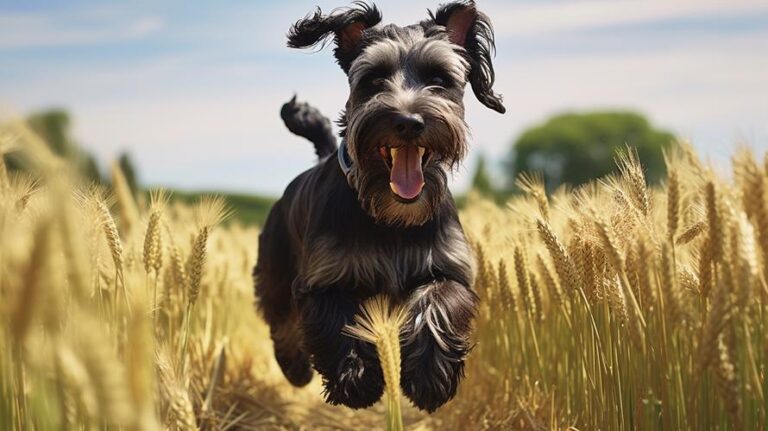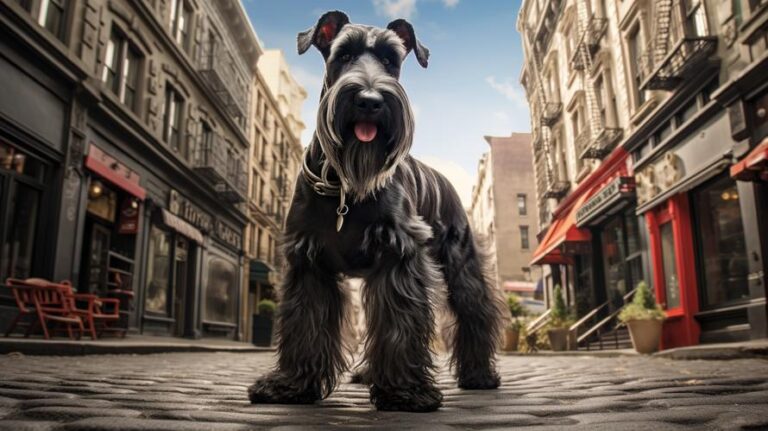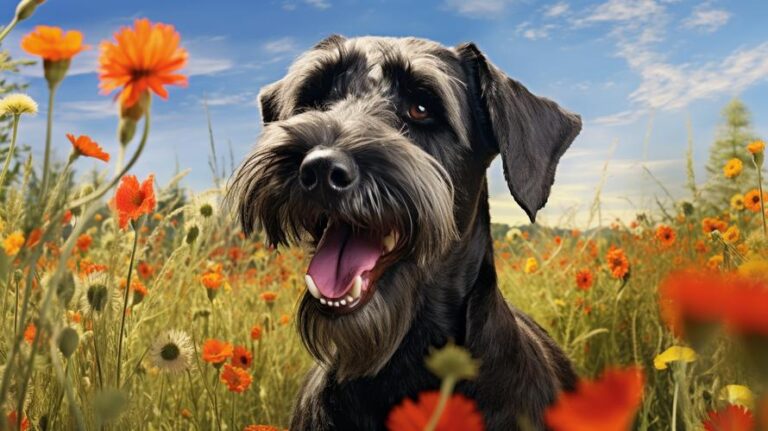Did you know that the term to describe Giant Schnauzers wasn’t always ‘giant’? In their native Germany, these robust, intelligent canines were originally known as the “Munchener,” named after the city of Munich where they were largely trained as police and military dogs. This name conjures the image of a powerful and stalwart protector, rather than an aggressive menace.
Nestled among the breed’s many admirable traits, their heightened protective instinct can sometimes lead outsiders to perceive them as aggressive, a perception that can be formed against any breed displaying a pronounced protective instinct. This, coupled with their formidable size, can lead to an unfairly earned reputation. This article aims to slice through this layer of misinformation.
So, is the Giant Schnauzer truly aggressive? The answer largely depends on both the owner’s approach to training and socialization, and the specific dog’s personality.
Characterized by their distinctive beard and eyebrows, the Giant Schnauzer possesses an undeniable charm. However, their imposing size and muscular build are no accident; these dogs were bred to work. They inherently possess a natural wariness towards strangers and a protective instinct towards their family and territory. These traits, when left unmanaged, can appear as aggression. While behavior varies from dog-to-dog, training and socialization play a significant role in managing any potential aggressive tendencies.
One of the most important aspects of owning any breed, Giant Schnauzer included, is understanding the dog’s background. Initially bred into existence in the 17th century, these hard-working dogs were used as cattle drivers and guard dogs in the southern Germany— a job that required both physical strength and mental resilience. Over the centuries, their role has evolved. Today, they are often employed as police dogs or in search and rescue operations. They’re also beloved family pets, known to offer unwavering loyalty to those they trust.
It’s the Giant Schnauzer’s protectiveness that often leads to the misconception of aggression. However, aggression entails intent to harm, whereas protectiveness involves a desire to safeguard loved ones. This distinction significantly alters how the dog’s actions are perceived and should shape how the behavior is managed.
Training plays a pivotal role in shaping a Giant Schnauzer’s demeanor. A diligent training regimen, applied with consistency, patience, and positivity is essential for this intelligent and energetic breed. They require a ‘job’ to keep their minds active, so obedience training, agility exercises, and mental stimulation games are ideal. With their strong will and intelligence, training should begin as early as puppyhood and continue throughout their life to prevent negative behaviors from forming.
Ensuring your Giant Schnauzer is well-socialized from an early age is another critical step in curbing potential aggression. Exposing them to a wide range of experiences, people, and other animals in a controlled and positive environment helps them understand what’s normal, reducing their likelihood to react aggressively out of fear or confusion.
Even an owner’s lifestyle and home environment affect a Giant Schnauzer’s temperament. They require regular exercise, plenty of mental stimulation, and quality time spent with their owners. Life with a Giant Schnauzer is a commitment, and they’re not the kind of dog to be left alone for long periods. Neglecting their physical and emotional needs might contribute to frustration, and indirectly, to aggression.
Just as humans have individual personalities, so do dogs. Some Giant Schnauzers may naturally be more alert or reactive than others, regardless of the quality of their training or the depth of their socialization. However, this doesn’t make them bad dogs and it’s not an irrevocable fate set in stone. Patience, understanding, and consistency bring out the best in these affectionate, protective, and energetic pals.
In conclusion, it’s an overgeneralization to label the Giant Schnauzer an aggressive breed. Their protectiveness can present as such, but with the right handling, their steadfast loyalty and unwavering courage transform them into commendable family protectors, not feared aggressors. As a Giant Schnauzer owner, remember that your goal isn’t to mute their protective instincts—it’s to navigate and guide it within acceptable boundaries, including reinforcing positive behaviors and correcting them when necessary. Remember, a well-socialized, well-exercised, and well-loved Giant Schnauzer is a joyous and loyal companion.



